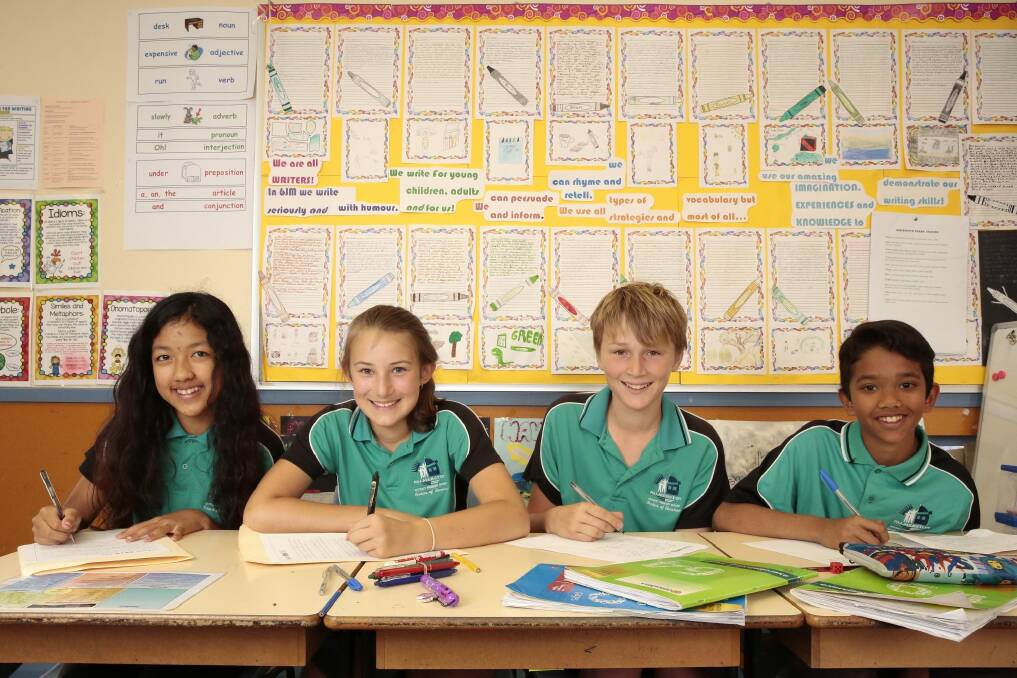Will handwriting go the way of the typewriter? A majority of surveyed Australian parents believe handwriting will be a lost art in 20 years' time, even though 84 per cent say it is an essential tool for learning and reading skills.
Subscribe now for unlimited access.
or signup to continue reading
The survey of 1013 parents of children aged five to 11 by penmaker Bic found 80 per cent agreed with the statement that handwriting benefits could not be replaced by technology.

But there'll be no rapid loss of handwriting skills if the students at Palmerston Primary School are any guide, with pens and paper still an essential part of each day.
Year 6 teacher Justine Martin said her students spent the majority of their school week handwriting, with two hours each morning dedicated to literary education where they practise all forms of writing and editing.
Quality handwriting was important, she said.
"By this late stage they understand why – they will have lots of teachers next year reading their work," she said.
"Also for assessment if they don't have to concentrate on the writing – the spelling, legibility – they can focus on the words."
University of Canberra associate professor in language and literacy Misty Adoniou said it was important children were able to form letters and write with automaticity, but did not agree creative thinking development was inherently linked to handwriting.
"I hear people say, 'when I'm handwriting longhand, I'm more connected to my ideas, I'm thinking through my ideas', and I just think that's them reminiscing about their ideas," she said.
"[Digital] technology is just as capable of helping you think through your ideas."
Technology continued to shift how people passed on messages, and teaching children cursive was "an anachronistic waste of time", she said.
But she was confident handwriting would not become a lost skill.
Former primary school teacher and now successful children's author and literacy adviser Louise Park, a Bic ambassador, said research continued to show children who wrote had improved reading skills, self-confidence, creativity and critical thinking skills.
"Your brain doesn't get the same workout from simply typing on a keyboard," she said.
Palmerston primary year 6 students said they rarely wrote letters, but continued to enjoy using a pen or pencil.
Will Rice said he found it easier to write and there were lots of distractions on computers.
Claire Warner said handwriting might not be as important in the future, particularly if she learned touch typing.
The survey found 49 per cent of children wrote outside of school each day.
Bic launched an initiative on December 7 to encourage handwriting, including a website with free activity sheets for teachers and parents to download.

